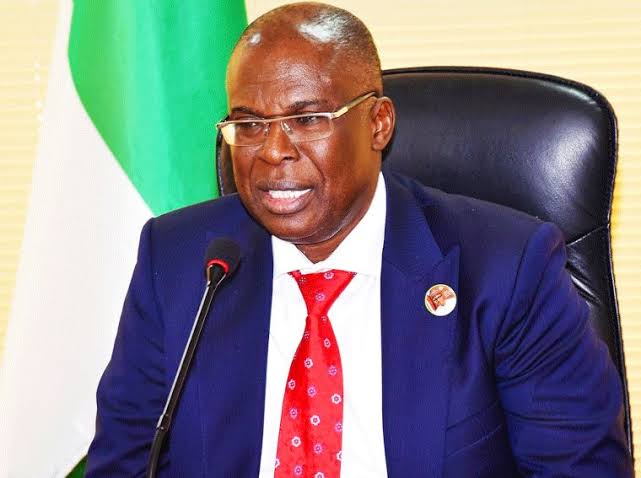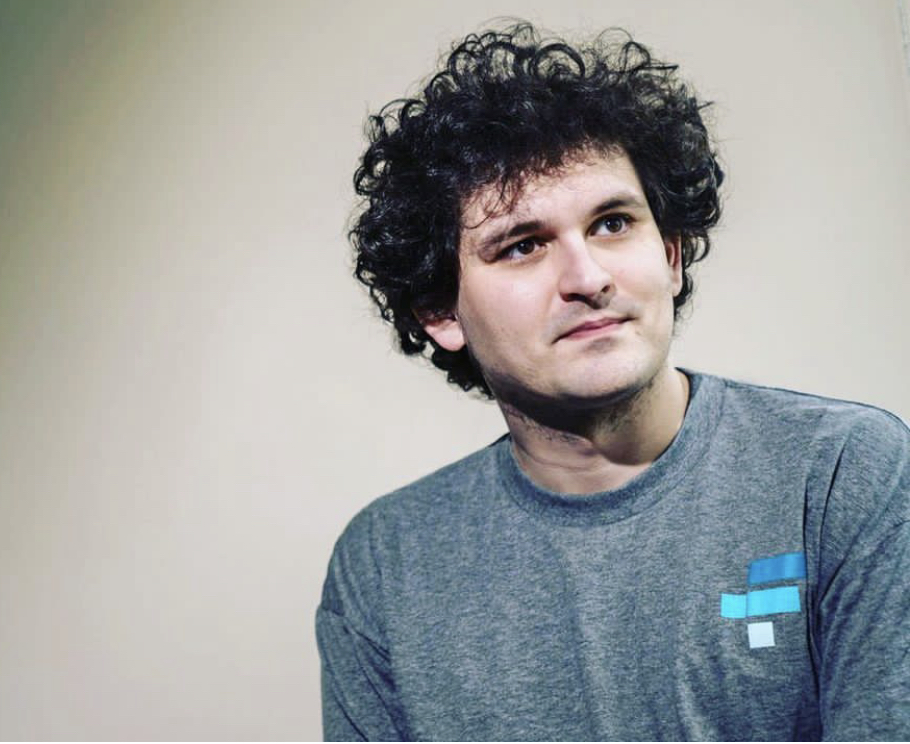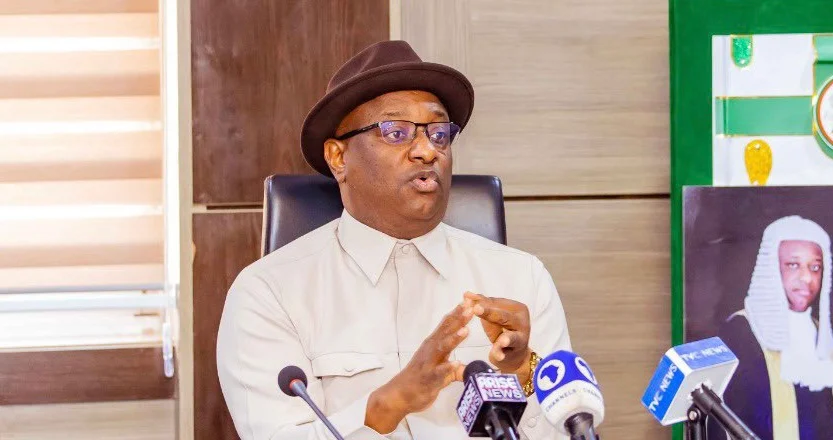
Nigeria’s Minister of State for Petroleum Resources, Timipre Sylva, has explained that the current pump price of petrol across states is not too bad when other factors causing the hike are carefully considered.
The minister, who was addressing a press in Abuja on Monday, said he will not feel bad about buying petrol at N300 per litre.
Sylva observed that the pricing of the commodity product is determined by a lot of factors including the Naira exchange rate.
Naija News reports that the minister said this during the 16th edition of the President Muhammadu Buhari Administration Scorecard (2015 – 2023).
The Minister admitted that so much money is being burnt by individuals and organizations to run their vehicles.
He also stated that the dream of making petrol price to return to N40 per litre is not feasible.
Sylva said: “You asked if we can achieve N40 per litre? I will say ‘yes’, but this is dependent on if we are able to also achieve, within this period, improvement in the exchange rate.
“If we can achieve one dollar to one naira exchange rate within this time, we would also be able to improve on the pricing because these things are dependent on other factors; the exchange rate is also a factor. That’s just in the lighter mood but seriously speaking, I commend the agencies under the ministry for their hard work. The management of the supply situation, under this subsidy regime is not easy.
“We must all agree, so much money is being burnt in our vehicles, but somehow, we have to scoop funds to continue to keep the country wet.
“The N40 per litre pricing is not something that is realistic. But, as you asked me, how I would feel as a private citizen to buy petroleum product at N300 per litre, frankly, I would say I won’t feel bad knowing the kind of situation and if you compare Nigeria to other countries, then, you would also understand. If you convert the N300 to other currencies, then, you would probably understand.”
The minister explained that some modular refineries had been completed but still faced with the challenge of crude oil supply. He assured that the rehabilitation of 60,000 barrels per day Port Harcourt refinery had been completed, adding that the refinery would commence production by the first quarter of this year.
He added: “We have taken 20 per cent equity in the Dangote refinery. We have also taken 20 per cent equity in Azike refinery, in the Walter Smith refinery, we took 30 per cent and in Dupaul, we’ve taken more than 20 per cent. Dupaul refinery has already concluded construction and it only remains to start operations. I’m sure within the next one month, and they will start operations.
“We are hoping the Dangote refinery comes on stream this year and once our own rehabilitated refineries start to work, we will be able to get the country wet (with petroleum products).
“These are contractual issues. They need to have fixed stock guarantee…These are commercial considerations between the owner of the modular refinery and the supplier of crude oil. As a ministry, we intervene to ensure that they are able to iron out the issues between the two parties.
“With Dangote, there’s already an agreement and we don’t have any problem. Some of these modular refineries have to get the crude from assets that are near them and they have these contracts with private sector owners of these assets; which we are intervening, to resolve.”






